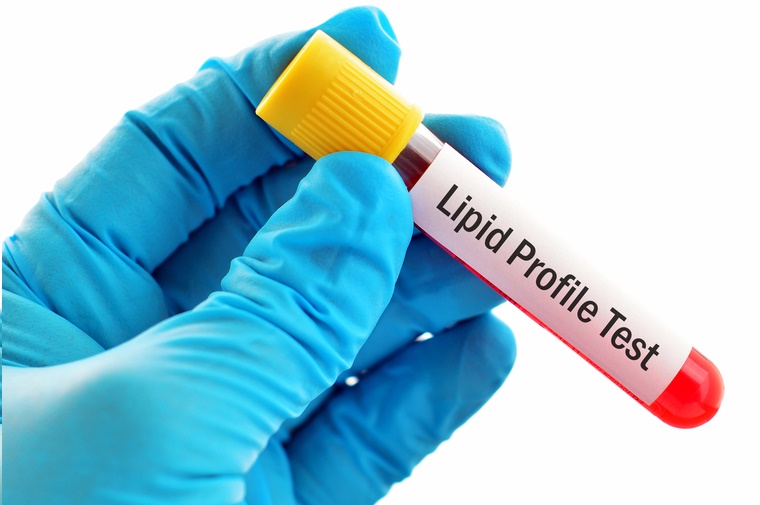
When it comes to your health, knowledge is power. Understanding the inner workings of your body can help you make informed decisions and take proactive steps towards better well-being. One such diagnostic tool that can shed light on your health status is a lipid panel test. In this article, we will delve into the secrets unlocked by a lipid panel test and explore how it can provide valuable insights into your overall health.
Understanding Lipid Panel Tests
Lipid Panel Test, also known as a cholesterol panel, is a blood test that measures various types of lipids or fats in your bloodstream. These lipids include cholesterol and triglycerides, which are essential for the proper functioning of your body but can pose health risks if their levels are imbalanced.
Importance of Lipid Panel Tests
Lipid panel tests play a crucial role in assessing your risk of developing cardiovascular diseases, such as heart attacks and strokes. By measuring your cholesterol and triglyceride levels, healthcare professionals can evaluate the health of your cardiovascular system and identify potential areas of concern.
Where To Get Tested?
Say Goodbye To Waiting Rooms And Long Lines. Speedy Sticks offers at-home testing.
Components of a Lipid Panel Test
A comprehensive lipid panel test consists of several components that provide a comprehensive picture of your lipid profile. These components include:
Total Cholesterol
Total cholesterol represents the overall amount of cholesterol in your blood, including both high-density lipoprotein (HDL) cholesterol and low-density lipoprotein (LDL) cholesterol. Monitoring your total cholesterol level is essential for assessing your cardiovascular health.
LDL Cholesterol
LDL cholesterol, often referred to as “bad” cholesterol, can contribute to the formation of plaque in your arteries, increasing the risk of heart disease. A lipid panel test can measure your LDL cholesterol level and determine if it falls within the optimal range.
HDL Cholesterol
HDL cholesterol, also known as “good” cholesterol, helps remove excess cholesterol from your bloodstream and carries it to the liver for elimination. High levels of HDL cholesterol are associated with a lower risk of heart disease, making it an important component of a lipid panel test.
Triglycerides
Triglycerides are a type of fat that circulates in your bloodstream. Elevated levels of triglycerides are linked to an increased risk of cardiovascular disease. A lipid panel test measures your triglyceride levels, allowing healthcare professionals to evaluate your lipid metabolism.
Interpretation of Lipid Panel Test Results

Understanding the results of a lipid panel test requires analyzing various parameters and comparing them to established guidelines. Here’s a brief overview of interpreting lipid panel test results:
Normal and Abnormal Ranges
Normal ranges for lipid panel test results may vary slightly depending on factors such as age and gender. However, in general, desirable lipid levels are as follows:
- Total Cholesterol: Less than 200 mg/dL
- LDL Cholesterol: Less than 100 mg/dL
- HDL Cholesterol: Greater than 40 mg/dL for men and greater than 50 mg/dL for women
- Triglycerides: Less than 150 mg/dL
Values outside these ranges may indicate an increased risk of cardiovascular disease and require further evaluation and intervention.
Risk Factors for Abnormal Lipid Levels
Several factors can contribute to abnormal lipid levels, including:
- Unhealthy diet: Consuming foods high in saturated fats, trans fats, and cholesterol can raise LDL cholesterol levels.
- Sedentary lifestyle: Lack of physical activity can lead to weight gain and increased triglyceride levels.
- Obesity: Being overweight or obese is associated with higher levels of LDL cholesterol and triglycerides.
- Smoking: Smoking damages blood vessels and lowers HDL cholesterol levels.
- Genetics: Family history of high cholesterol or lipid disorders can predispose individuals to abnormal lipid levels.
Health Implications
Imbalanced lipid levels can have significant implications for your health. High levels of LDL cholesterol and triglycerides increase the risk of developing atherosclerosis, a condition characterized by the buildup of plaque in the arteries. This can lead to restricted blood flow and increase the chances of heart attacks and strokes.
On the other hand, maintaining optimal levels of HDL cholesterol can help protect against cardiovascular diseases. HDL cholesterol acts as a scavenger, removing excess cholesterol from the arteries and reducing the risk of plaque formation.
Say Goodbye To Waiting Rooms And Long Lines. Speedy Sticks offers at-home testing.
Lifestyle Changes
If your lipid panel test reveals abnormal levels, it’s essential to take proactive steps to improve your lipid profile and overall health. Here are some lifestyle changes that can positively impact your lipid levels:
- Adopt a heart-healthy diet: Include fruits, vegetables, whole grains, lean proteins, and healthy fats in your diet. Limit the intake of saturated and trans fats.
- Engage in regular physical activity: Aim for at least 150 minutes of moderate-intensity aerobic exercise or 75 minutes of vigorous exercise per week.
- Maintain a healthy weight: If you’re overweight or obese, losing even a small amount of weight can significantly improve your lipid profile.
- Quit smoking: Seek support to quit smoking, as it can have a profound impact on your lipid levels and overall cardiovascular health.
- Limit alcohol consumption: Excessive alcohol intake can raise triglyceride levels. Drink in moderation or avoid alcohol altogether.
By implementing these lifestyle changes, you can optimize your lipid levels, reduce your risk of cardiovascular diseases, and enhance your overall well-being.
Conclusion
Unlocking the secrets of your health begins with understanding the vital information provided by a lipid panel test. By evaluating your cholesterol and triglyceride levels, healthcare professionals can assess your cardiovascular health, identify potential risks, and guide you toward necessary lifestyle modifications. Taking charge of your health by monitoring your lipid profile empowers you to make informed decisions and embark on a path of wellness.
Say Goodbye To Waiting Rooms And Long Lines. Speedy Sticks offers at-home testing.








Recent Comments